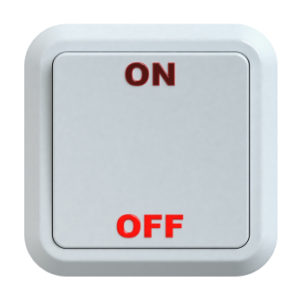 This is the time of year when some families take a spring break vacation, but many professionals will still be “working” while away from the office. Studies show that over two-thirds of workers will take a laptop or smartphone with them on vacation.Technology does make it easier to connect, but it’s not the real reason that drives, what some would call, “workaholic” behavior.If you’re having trouble letting go of work, it could reflect any of the following needs: This is the time of year when some families take a spring break vacation, but many professionals will still be “working” while away from the office. Studies show that over two-thirds of workers will take a laptop or smartphone with them on vacation.Technology does make it easier to connect, but it’s not the real reason that drives, what some would call, “workaholic” behavior.If you’re having trouble letting go of work, it could reflect any of the following needs:
- The need to feel important — There’s gratification in solving a problem or being the “go-to person” in a time of crisis. It’s nice to be needed.
- The need for connection — This is a basic human need. People often spend as much time with co-workers as they do with their own family. It’s difficult to break communication patterns while away. Habits have set in.
- The need to please — We often equate responsiveness with good service. People who want to be most responsive have a more difficult time disconnecting from work. “What if I don’t return a phone call promptly?”
You may be caught up in the struggle yourself — wondering how much to work, and when and where to work, if on vacation. If so, you’re not alone.
Many executives with whom I work have significant challenges balancing life and work because they take their leadership role very seriously. They feel guilty focusing on work when they’re at home or on vacation.
My advice: Don’t judge your situation. Simply notice what’s happening.
Some experts suggest disconnecting from work as though you have an ON and OFF switch you can control at will.
 What works for one person may not for another. People are complex. Too many variables apply. What works for one person may not for another. People are complex. Too many variables apply.
For example, one variable is your style. Some people thrive on troubleshooting while others prefer working on something with concentrated focus for a long period of time. One person might be able to take a quick look at email messages and get back to the beach. Another might lose themselves in a project for hours.
Other factors include:
- The nature of your work
- The (real) urgency of the situation
- The ease with which you can respond — the time or brainpower required
- The perceived payoff
- Your view of work (Many people actually enjoy their work! To them, work is not work.)
- The relationship with your client or customer
Consider factors in your personal life as well. Specific personal or family needs may be more important than priorities at work.
Only you can decide how to integrate your work and life. Some companies have taken steps to force employees to take breaks of one kind or another — whether it’s a lunch break or a day off.
Studies have shown that taking breaks regularly actually increases productivity.
Take Your Break
As a leader, you’re conditioned to ask the work related question, “What do we need to accomplish?”
But when you’re on vacation, you might ask a different question like:
“What do I want to experience?” or
“With whom do I need to be most present today?”
There’s no right or wrong answer. No results required.
Get rid of your guilt.
Get on with your life — and work.
Your to-do list will still be waiting for you upon your return!
|


